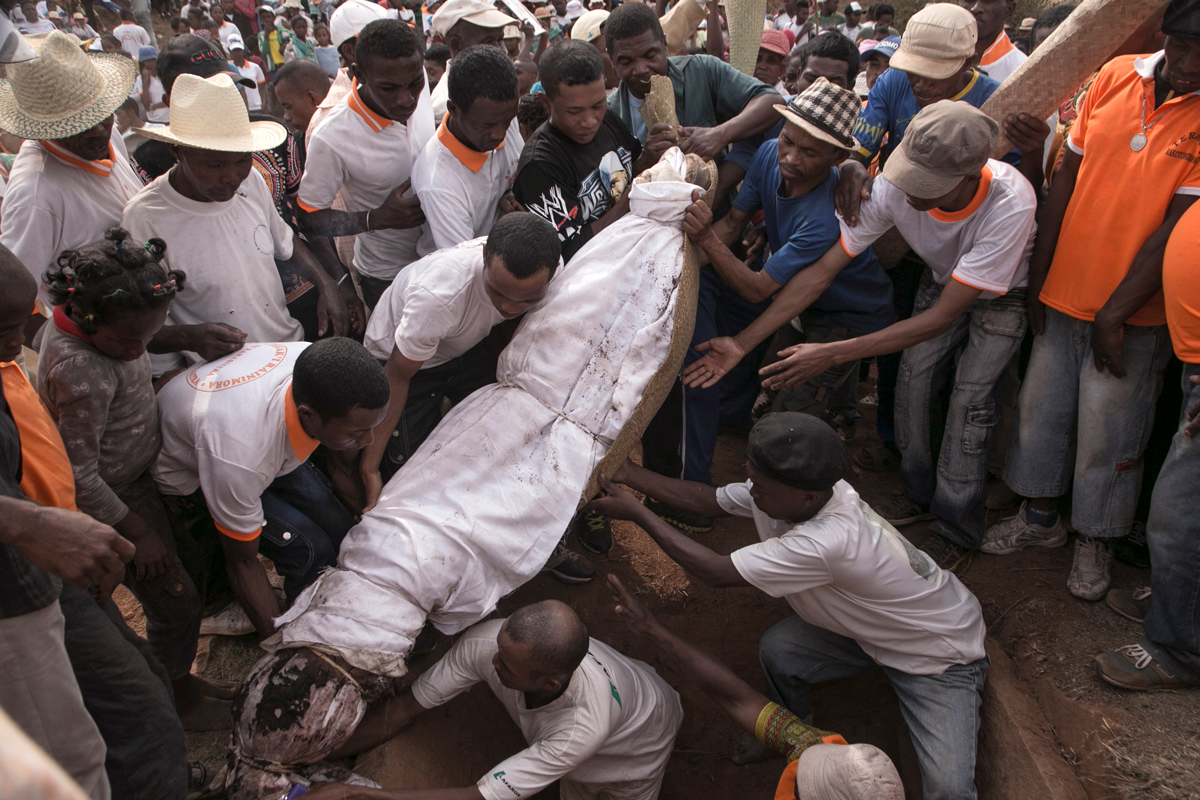
'Dancing with the Dead' Ritual Could Help Plague Spread

The current plague outbreak in Madagascar has killed more than 100 people, and officials say that a centuries-old tradition may increase the risk of further spread, according to news reports.
The tradition, called "famadihana" in Malagasy, is sometimes referred to as "dancing with the dead," "the turning of the bones" or "body turning," according to Newsweek. It involves exhuming the bodies of the dead, rewrapping them in fresh cloth and then dancing with the wrapped corpses before returning the remains to their graves. The tradition is practiced in the central region of the island nation, on the country's high plateaus.
But removing infected bodies from graves poses a threat. [How the Plague Outbreak in Madagascar Got So Bad, So Fast]
"If a person dies of pneumonic plague and is then interred in a tomb that is subsequently opned for a famadihana, the bacteria can still be transmitted and contaminate whoever handles the body," Willy Randriamarotia, the chief of staff in Madagascar's health ministry, told the Agence France-Presse (AFP), an international news organization.
The plague is caused by the bacterium Yersinia pestis. The most common form of the disease is the bubonic plague; it occurs when Y. pestis gets into the body and travels to the lymph nodes. These lymph nodes become inflamed, and are referred to as "buboes," the World Health Organization says. If the bubonic plague goes untreated, the bacteria can spread to the lungs, causing pneumonic plague. This form of the disease can be spread through the air, the WHO says.
The Malagasy government has issued rules dictating that the bodies of plague victims cannot be buried in tombs that can be reopened. However, local media have reported several instances of such bodies being exhumed covertly, the AFP reported.
During a famadihana ceremony in a community located near the country's capital, one woman told the AFP, "I will always practice the turning of the bones of my ancestors — plague or no plague. The plague is a lie."
Sign up for the Live Science daily newsletter now
Get the world’s most fascinating discoveries delivered straight to your inbox.
Since the outbreak began in August, nearly 1,200 cases of the deadly disease have been reported in the country, according to an Oct. 23 report from the United Nations' humanitarian affairs office and the Malagasy government.
Originally published on Live Science.

Flu: Facts about seasonal influenza and bird flu
What is hantavirus? The rare but deadly respiratory illness spread by rodents










